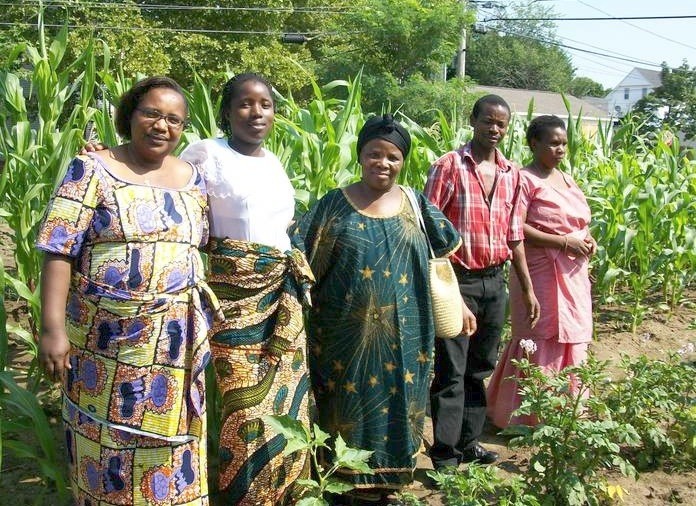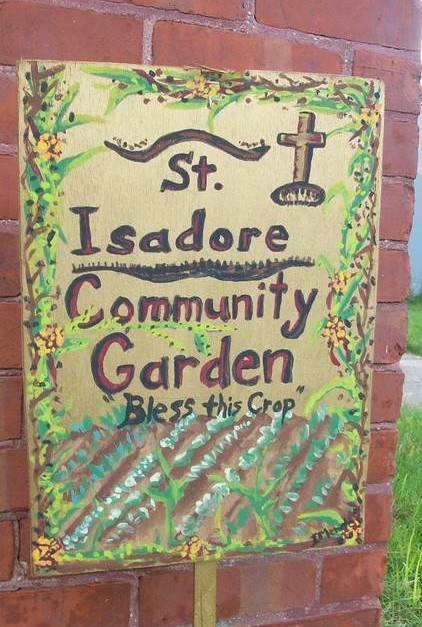Lots of hope to be found in Providence
Local community urban farming takes root, proving that it is truly all in our backyard
The work to change the landscape of Providence into a network of community gardens, creating access to local, nutritious food, is a different kind of community development than investing in the rehabilitation of the Superman building, but no less important. It is focused on the needs of the people living in the community, not the desires of developers.
PROVIDENCE – “Lots of Hope” is an initiative of the Office of Healthy Communities in the City of Providence, created by executive order by Providence Mayor Angel Taveras two short years ago.
Since then, Peter Asen, director, and Ellen Cynar, program coordinator, of the Office of Healthy Communities – along with more than 30 community leaders – have been building assets in our neighborhoods to address social and environmental root causes of disparities in population health.
With help from the City Council President Michael Solomon, the city of Providence is making land, owned or controlled by the city and its quasi-governmental planning agencies available to the African Alliance and their urban gardeners to increase food production, increasing access to families on the “South Side” and “West End” of Providence to a more healthy diet.
Most of the gardeners in this particular project have arrived in Rhode Island as refugees. “Refugee” has a technical definition under U.S. immigration law that I will not bother to explain in detail.
In short, these are people who have no other place to go. They have been displaced by war in their home countries – often genocidal wars where they have lost not only loved ones, their homes and businesses, but their entire communities. They cannot go home.
Out of Africa
I asked one family who came here from East Africa seven years ago to help me put a face on the story of “Lots of Hope.”
Marie, who is the mother of Claudette and Jeannette, constitute the household that I enlisted to tell a part of this story that is really not just about growing and distributing locally grown fruits and vegetables to low income neighbors in Providence.
They were living in Rwanda and were engulfed in the genocide there between Tutsis and Hutu ethnic groups, a conflict some say was instigated by Western countries, including ours.
I was told the backstory behind “Lots of Hope” while sitting around a dining room table in their flat on Moore Street.
[While driving to Moore Street, I had flashback memories associated with the childhood lead poisoning epidemic in south Providence and a long-standing but failed enforcement attempt by our Attorney General’s office against the worst slumlords in my recollection, but I digress.]
Marie speaks four languages, and English will be her fifth. Her daughters translated for us from English to Swahili and vice versa.
First, I wanted to know how this all began for her. She recounted that about five years ago, while walking in her neighborhood, she came upon a neighbor who had a similar route to Providence but came from Tanzania.
Roots in a small backyard garden
The woman had a bunch of a vegetable called intoryi (in the dialect called Kinyarwandi) that Marie recognized as having come from the old country. She asked the woman if she could have some.
When she arrived home, she put the vegetable in water and waited. They sprouted roots and when the weather outside got warm enough at night, Marie planted them in a small garden behind her home where she had, as is traditional for her, a garden.
In her native country almost every household had a small garden behind the home, in which a variety of local vegetables had been grown – not for sale at the market, but for consumption by the family.
At about this same period of time, Sister Ann Keefe from St. Michael’s Parish was visiting her and saw the garden. Marie had already been working with Sister Anne and several other African women on a micro-enterprise effort to use tailoring skills that many of the refugee women had acquired over their lifetimes.
Sister Ann saw her garden and told Father Tom, a priest at St. Michaels, that what was needed was a larger plot to expand the garden so that others could join the effort.
Several attempts to bring others from the parish to discuss the idea yielded little interest. Marie suggested that a smaller start with two or three gardeners might be a smarter way to begin.
She reached out to one of her tailoring partners, Jeannette, who had already started gardening with the help of Julius Kolawale, the president of the African Alliance.
Eventually, several other women from the African Diaspora joined in the work at St. Michael’s, and because of Jeanette’s connection to the African Alliance, other opportunities for gardening grew using property acquired in collaboration between the African Alliance and Southside Community Land Trust.
About two years ago, with leadership from the African Alliance, African vegetables grown in multiple sites in Providence’s South side and West End were brought to the farmers market on the Parade Grounds near the Cranston Street Armory, and quickly sold out.
The message was clear: there was a market demand for this produce. Expanding the number of women with plots became a priority for the African Alliance. Soon, with funding from the RI Department of Health’s Comprehensive Health, Equity and Wellness program, “Lots of Hope” now has several acres under management.
A positive force
After learning about the story, I asked Marie’s girls to find out how gardening has affected their mother’s life here in Providence.
Marie talked about how much stress is relieved when she is in the garden. She also mentioned that during the growing season, she walks to each of her plots and has lost a significant amount of weight, sleeps much better than ever and enjoys the camaraderie between other growers whenever she is tending her plots.
Jeanette and Claudette were amazed to hear their mother’s answer to this question. They explained that they rarely discuss feelings or emotions, stress or other aspects of mental health in their community. It was for them the first time they actually had heard out loud about the impacts of the community gardens on their mother’s state of mind.
This is the third in a series of reports on the R.I. Department of Health’s investments under the Comprehensive Equity and Wellness Center (CHEW). See links to the two previous stories in ConvergenceRI below.
Dr. Peter Simon is the former medical director of the Division of Community, Family Health, and Equity at the R.I. Department of Health. He was recognized as a national Public Health Hero in 2012, and he received a 2013 Community Hero Award from the Childhood Lead Action Project.







